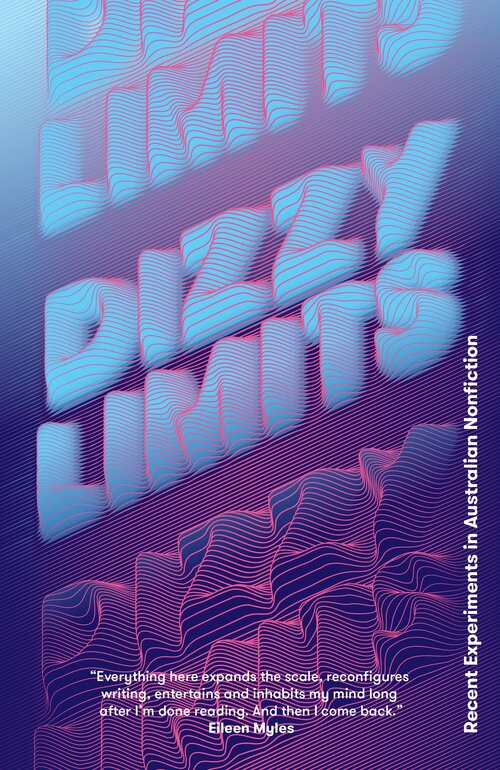dizzy limits: recent experiments in australian nonfiction
Dizzy Limits is an eclectic collection of experimental non-fiction that uses unorthodox style to capture truth and deeper self-exploration. The book features a range of contributors, who all utilise various styles and voices to produce unique pieces of work. The twenty-two essays explore a range of topics including cultural identity, the body, the environment and mental health. Compiling writing from the 1990s to the present day, Dizzy Limits searches for new ways to express truths and does this by pushing the boundaries of traditional non-fiction. In the search for experimental expression, some pieces became a tiring read while others were innovatively captivating.
One standout piece was Being a Boy Mama (Everything Matters) by Quinn Eades. Eades uses personal memoir to comment on the politics of gender and its impact on parenthood. By offering glimpses into Eades’ experiences, he shows the overt and subdued challenges that genderqueer motherhood presents. Eades’ shows the difficulty in protecting his children from gender policing whilst balancing this with safety. He uses examples of LGBTQI+ allies to show the privilege of expressing one’s own political beliefs and identity without the same extent of fearing for your safety. His essay reinforced the real life and tangible danger that politicisation can bring, using the 2017 plebiscite as an example. Overarchingly, Eades uses these experiences to pose the question of how justice can ever be achieved if this relies on being open and alive to meet each other.
Another highlight of the book was To Un Fold a Body of Small Talks by Jessie Berry-Porter. Uncomfortable and raw, Berry-Porter uses a stream of consciousness style to speak about body dysmorphia and mental health. She speaks of her body externally, using this to explore how bodily identity is given shape by others. Throughout the piece, it feels that Berry-Porter almost renders her own self invisible through this externalisation. Berry-Porter states that she does not know ‘what body stands for outside of illness’, while subtly indicating that the body is entwined with internal trauma. This dichotomy between the internal and the external is held throughout the piece, creating an uncomfortable and poignant feeling that lasts well after you finish reading.
The Leech Barometer by Rebecca Giggs was also a captivating read. Giggs reflects on her personal experiences with leeches, the history of leeches and why leeches are so unsettling for humans. Leeches, often unthought of by many, have many interesting and fascinating qualities that Giggs expresses in an easy read.
Other enjoyable pieces include Trash-Man Loves Maree by W.J.P Newman, Flaming June: Still Life in the Anthropocene by Sophia Rose O’Rourke and What Sprouts at the Fissures by Tess Pearson. Other contributors included Ellen van Neerven, Evelyn Araluen, Eloise Grills, Oliver Reeson, Elena Gomez, Noëlle Janaczewska, Jean Bachoura, Bella Klaver, Amanda Stewart, Oscar Schwartz, Lucy Van, Vivienne Cutbush, Holly Childs, Nikkola Mikocki-Bleeker, Harry Saddler, Autumn Royal, Stephanie Guest and Kate Riggs.
Overall, Dizzy Limits presents a collection of essays that expand the boundaries of non-fiction writing. While some essays push the envelope more than others, all the authors use expressive and innovative techniques to delve into their truth. Through using these innovative styles, each piece is personal, poignant and raw.


